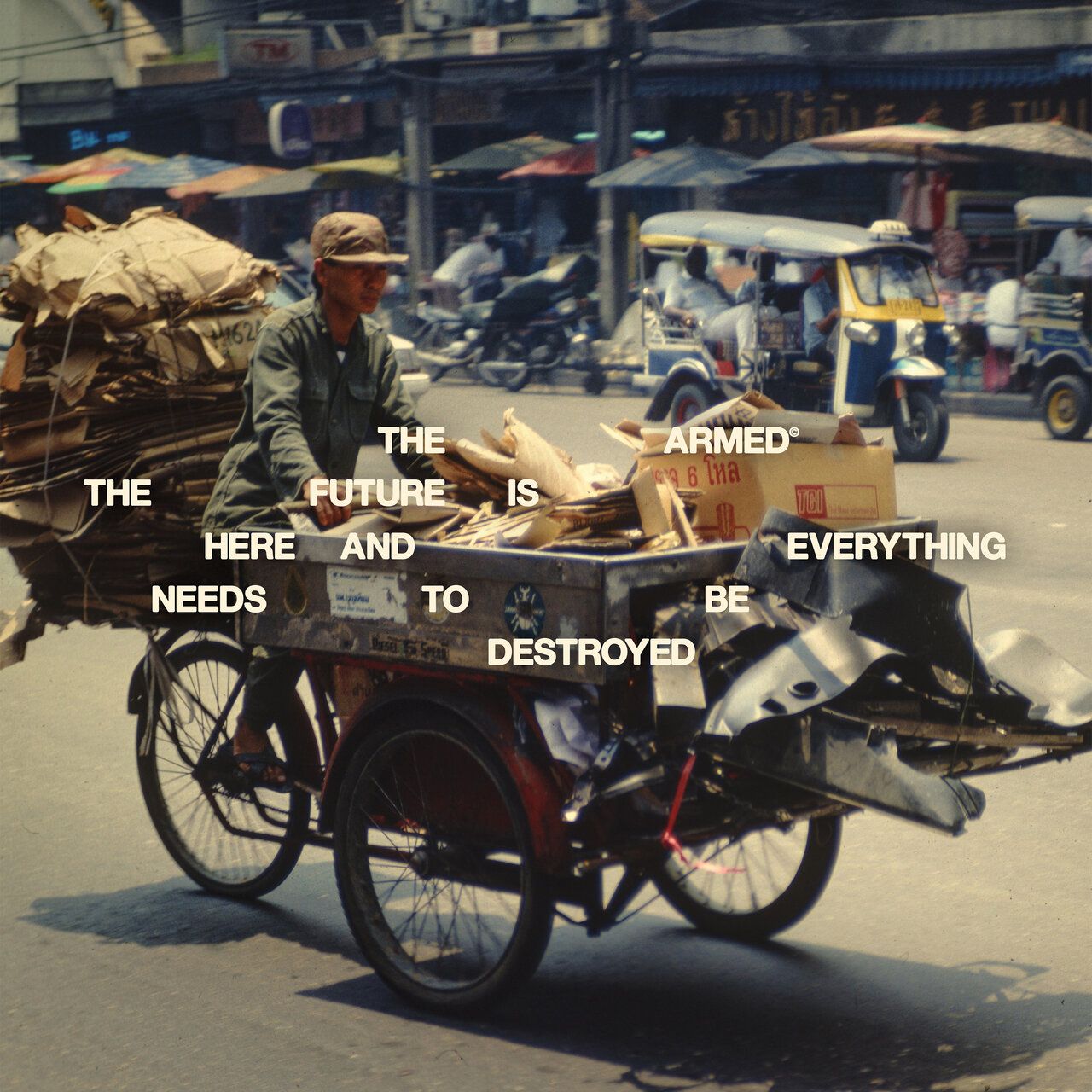The Armed are mad as hell, and they’re not going to take it anymore. After a loosely connected three-album cycle exploring the outer limits of hardcore punk, extreme pop, and the idea of “authenticity,” the cultish, semi-anonymous Detroit collective’s sixth album dispenses with high-concept experiments in favor of something more immediate. Built around a barrage of blast beats, dissonant guitars, and feral vocal outbursts, THE FUTURE IS HERE AND EVERYTHING NEEDS TO BE DESTROYED is billed as a spasmodic response to dehumanization and disaster. And when it sticks to that first-thought philosophy, it’s a thrilling success.
The appropriately pithy press release that accompanied the album’s announcement situated it as an “unfiltered expression of Weltschmerz,” a German word for the depression that sets in when the world as it is, with all its suffering and misery, can’t match our ideals. Ours is a planet of trash fires and overtourism, balanced on the precipice of mass destruction; we have round-the-clock access to livestreams of state-sanctioned mass murder, interrupted by marketing pablum and vacation selfies. “Cheap shit/Fake fame/Dead kids/New gains,” lead vocalist Tony Wolski screams on “A More Perfect Design.” Trying to metabolize that poison isn’t human. It’s better, the Armed propose, to snap. So the album begins with Wolski screeching the apocalypse—“FOOLS! LIARS! HEATHENS! TRAITORS! REPENT! BE SAVED! JUDGMENT IS COMING!”—and maintains that life-or-death energy for as long as possible.
In these moments, bloody-throated and wide-eyed, the Armed really do sound vital. This is unvarnished madness, a man waving his arms on the street corner and imploring Saturday-morning shoppers to see the light. “Kingbreaker” begins with a desert rock swagger but beefs up into a half-speed breakdown with Wolski wailing, feral and adrenal: “My only friends are fucking scum…/In the noise we are all just ghosts.” On the frantic “Gave Up,” things slow to a heavyweight pace again for him to howl “so hollowed out” while incongruously melodic background consolation (“But never alone”) is all but buried by the noise. These brutal breakdowns are perfectly distributed across the album, like enormous fluorescent signposts on a dimly lit road.
The trouble with state-of-the-union albums is that they often come off as didactic, and the Armed do clip the edges of that minefield occasionally. Looking around at a world full of straw men on “Broken Mirror,” Wolski disdainfully lists them off one by one: “These Yacht Club Socialists/These Patriot Grifters/Patriot psalm and their cure-all elixirs/These Anti-Christ Christians sure look more like demons.” It has the tone of the KLF and the Bush-era archetypes of American Idiot, which leaves the song in the middle of nowhere. Still, building those caricatures into something more like characters produces some of the album’s best moments. The detestable and judgmental antagonist of “Purity Drag”—“Nothing is my fault/I am divine”—is a worthy target, pushed to the point of absurdity with their delusions of divinity. “Local Millionaire,” a molten rock song that could almost garner radio play, has a similarly one-dimensonal and (intentionally) self-important narrator who could easily become tiresome, but the voice shifts at the last second, ending with a viciously articulated “go fuck yourself” that pushes the track away from mimicry and back toward satisfying, knee-jerk fury.
